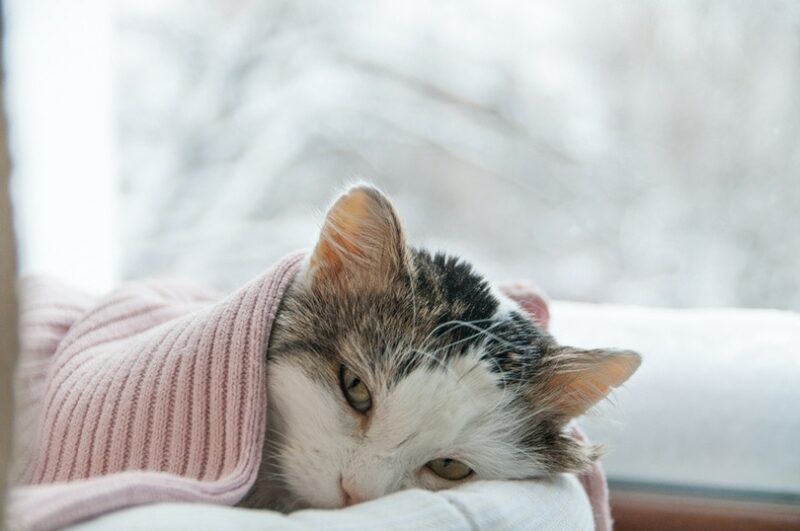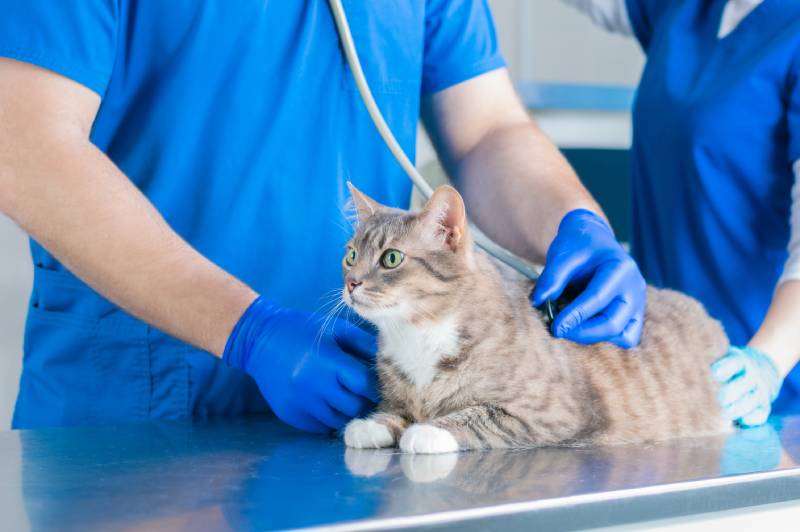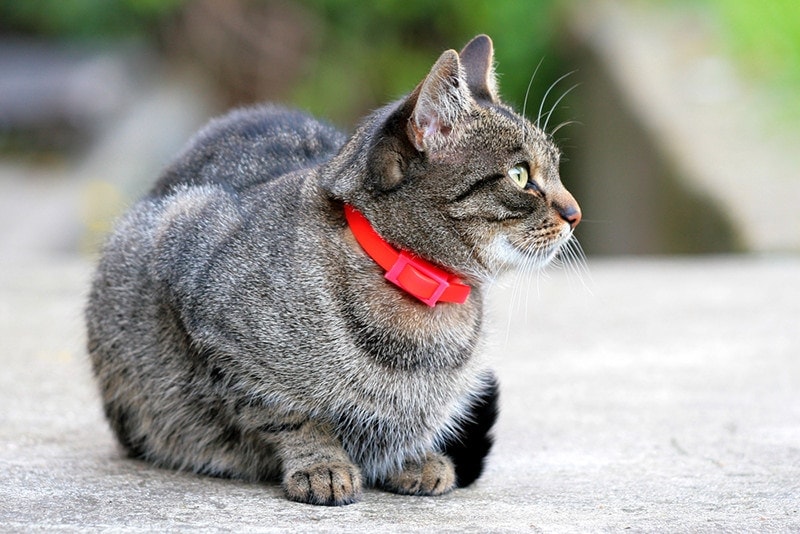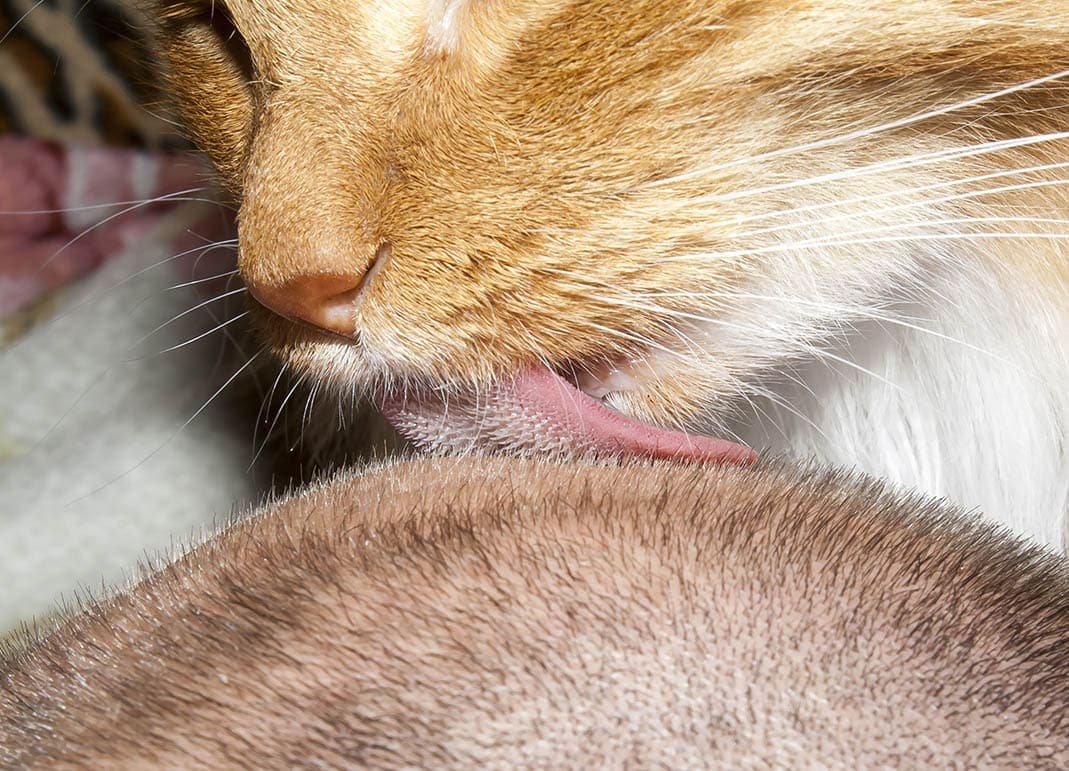Can Cats Eat Carrot Cake? Vet-Reviewed Facts & FAQ
Updated on

Click to Skip Ahead
Carrot cake is a hit during all the holidays that call for family get-togethers, holidays, or even birthdays. However, if your kitty has gotten into your carrot cake, you’re probably wondering if you need to contact a veterinarian or not.
Unfortunately, carrot cake may contain ingredients that can be toxic for cats. Read on to learn more.
Why Can’t Cats Eat Carrot Cake?
Cake, of any kind, is not a natural part of any cat’s diet. Your kitty is an obligate carnivore, requiring a diet of animal protein. Carrot cake contains zero ingredients that are nutritious for your cat, so it’s not something you should consider offering your pet. Cake does not have the proteins or nutrients cats need to thrive.
It’s not just that the ingredients aren’t a healthy part of your pet’s diet, either. Some of them are dangerous and downright deadly if eaten in a large quantity.

Spices
Cinnamon and nutmeg are two of the most used spices in carrot cakes, and neither is good for cats. While it would take a fair amount to cause anything more than an upset stomach (more than a teaspoon, which is more than what they’d be exposed to via a piece of carrot cake), it’s still worth mentioning.
Nutmeg contains a toxin called myristicin that can cause various issues when ingested in large amounts. Cats exposed to nutmeg may develop signs such as vomiting, dry mouth, fast heart rate, and difficulty walking.
Sugar
Don’t let the word “carrot” fool you into thinking this tasty cake is healthy. A recipe can call for as much as two cups or more of sugar in various forms. While sugar isn’t toxic for cats, it’s unhealthy for them. We add sugar to cake recipes to give them a yummy sweetness. Cats cannot taste sweet flavors, so offering carrot cake to them isn’t even giving them the benefits we derive from eating it.
Raisins
Some carrot cake recipes call for raisins, which are known to be toxic to cats and dogs. According to PetMD, around 15% of cats and dogs that eat raisins (or grapes) will show signs of toxicity afterward. In some cases, raisin ingestion can lead to kidney damage.
Clinical signs of raisin toxicity include:
- Increased thirst
- Lethargy
- Diarrhea
- Vomiting
- Increased urination followed by no urination
- Dehydration
- Weakness
- Collapse
Cream Cheese Frosting
The delicious cream cheese frosting is perhaps the best part of carrot cake (at least for humans). Cream cheese is, unfortunately, extremely high in fat and calories, making it highly inappropriate for the feline diet. Additionally, it has high amounts of lactose, and since many cats are lactose intolerant, ingesting cream cheese can cause a stomach upset.

Obesity in Cats
Obesity is a common problem in pet cats. Excessive calorie intake and not enough exercise are contributors to obesity. So, if your cat is overweight, avoid calorie-dense treats such as carrot cake. Unfortunately, obese cats have a higher risk of serious and, sometimes, life threatening illnesses such as diabetes, joint problems, fatty liver disease, urinary tract issues, and even some cancers.
What Do I Do if My Cat Ate Carrot Cake?
Monitor your kitty for signs of digestive upset or illness if he has accidentally eaten some of your carrot cake, provided it is a raisin-free variety. The cakes’ high fat, calorie, and sugar content may cause stomach problems. Get your cat seen by a veterinarian if symptoms persist.
We highly recommend calling your veterinarian for advice immediately if there are raisins in your recipes. Even a small number of raisins can cause your cat to fall ill and may even lead to the rapid development of kidney failure.

What About Carrots? Can Cats Eat Them?
While most ingredients in carrot cake are inappropriate for cats, the main ingredient—carrots—is okay for cats to eat. They’re rich in beta-carotene, vitamins, and minerals like manganese, phosphorus, and potassium.
Carrots should be thoroughly washed and peeled before eating. Boiling, steaming, or baking the carrots will give them a soft, chewy texture that’s easy for cats to eat.
However, don’t be offended if your cat turns his nose up at your carrot offering. Remember that cats are obligate carnivores and, as such, usually disinterested in fruits and veggies.
What Are Better Treats to Offer?
If you landed on our website because you were thinking of offering your kitty some carrot cake as a delicious treat, please know that you can offer many other, more species-appropriate treats instead. While you may not consider the following foods a treat, your cat certainly does! The best foods you can offer as an occasional treat include:
- Salmon (boneless, cooked)
- Eggs (not fried, unseasoned, no milk added)
- Chicken (cooked, unseasoned, boneless)
- Pumpkin (cooked)
- Blueberries
- Turkey (cooked, unseasoned, boneless)
Final Thoughts
Carrot cake is not a food you should offer your kitty as the majority of its ingredients are unhealthy for the feline digestive system. Some are even dangerous. If your cat has eaten some of your raisin-containing carrot cake, we recommend calling your veterinarian for advice. Immediate treatment is necessary, so you shouldn’t wait for your kitty to start exhibiting signs of raisin toxicity.
Featured Image Credit: Rawpixel.com, Shutterstock













